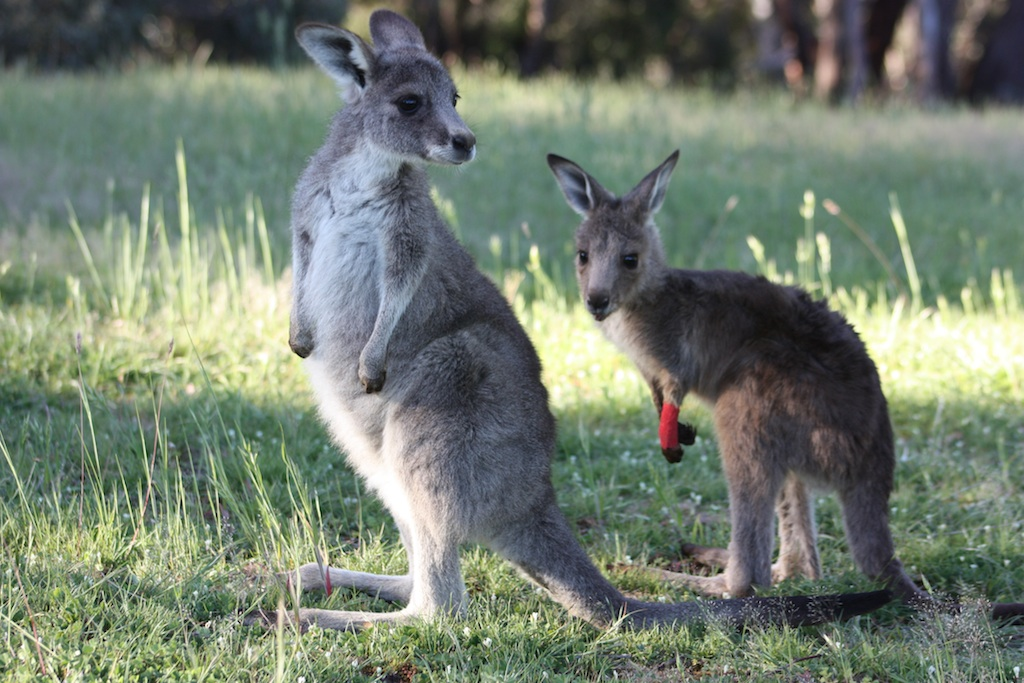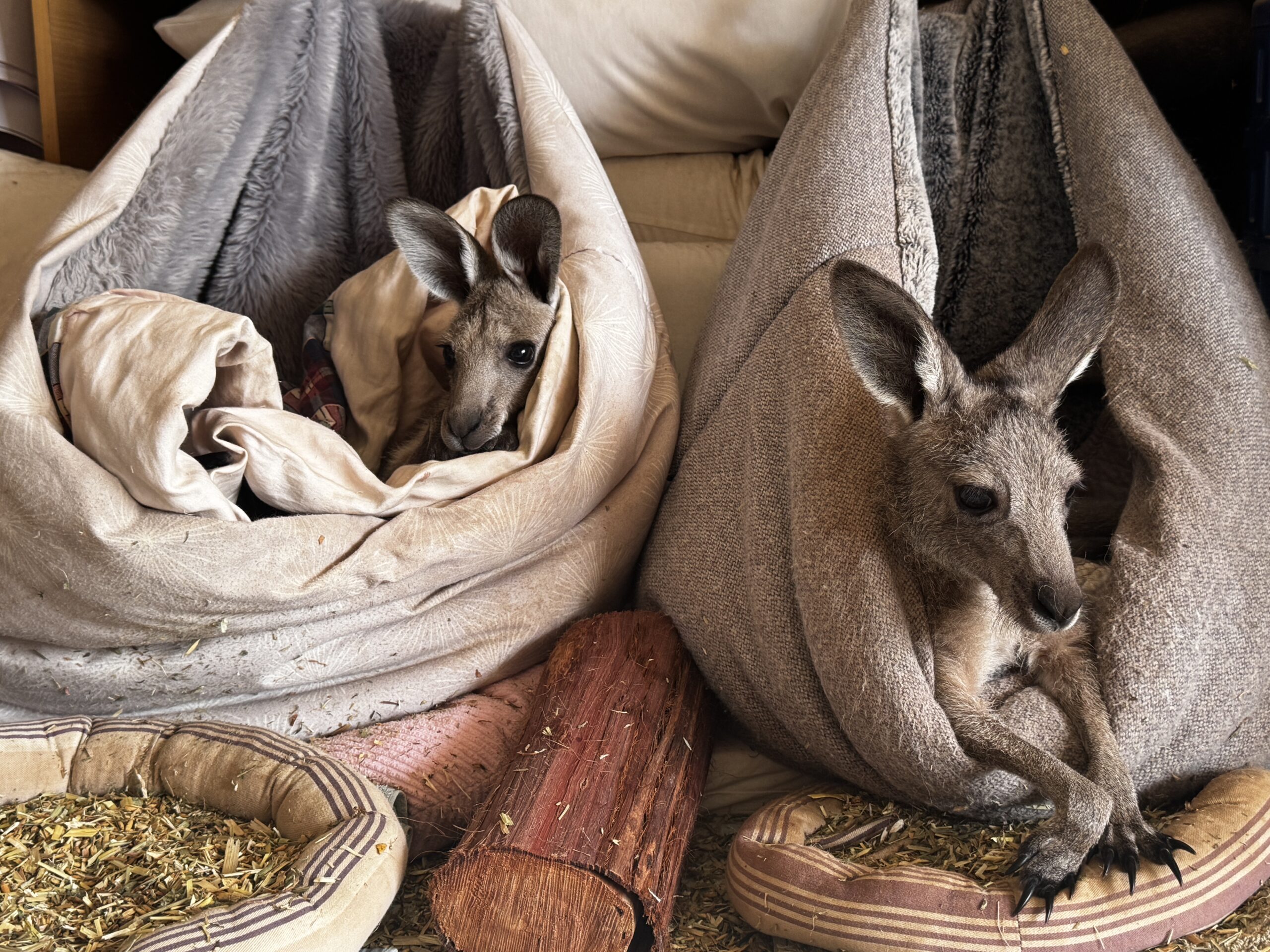Data on NSW licencing reveal the extent of Government-sanctioned destruction of native animals in the state | Conservation groups and wildlife carers to provide evidence of the extent of cruelty at inquiry into licensed killing SYDNEY (5 February, 2026)—Humane World for Animals Australia (previously Humane Society International Australia) will...
The HSUS and Humane Society International have announced a major, multi-million-dollar agreement with the New York Blood Center (NYBC) concerning more than 60 chimpanzees formerly used by the NYBC in medical experiments in Liberia. The New York-based medical charity has committed $6 million to The HSUS to help with the decades-long task of providing long-term care for the animals. The joint announcement signals a critical turnaround in The HSUS and Humane Society International’s relationship with the NYBC. Most importantly, it provides financial resources for the careful stewardship of these chimpanzees, who deserve every measure of human mercy after the travails they’ve endured.

Photo by Carol Guzy for HSUS/HSI
In 2015, The HSUS and Humane Society International responded to an emergent crisis and began to care for the chimpanzees on a set of estuarine islands in Liberia with insufficient natural food and water resources. Dedicated individuals took it upon themselves to provide enough food and water for the chimpanzees to survive in the first days, but the circumstance required the intervention of a party that had the staying power to provide daily care to the animals. With the support of the Liberian government and more than 35 animal protection and conservation organizations worldwide, The HSUS stepped in, bringing on many of the chimps’ long-term caregivers to provide boots on the ground for the animals. We’ve been there ever since, at a cost of tens of thousands of dollars a month. We have a staff of more than 30 people operating the facility, led by great ape specialists Dr. Jim Desmond and Jenny Desmond, as well as John Zeonyuway and Joseph Thomas, who have worked with the chimpanzees in Liberia for decades.
To care for these animals, we had to confront some extreme logistical, security, and personnel challenges, in addition to shouldering responsibility for the immense financial liabilities that this intervention required. In the broadest sense, we were mindful that chimpanzees are long-lived, and our response to this crisis essentially obligated us to a 40-year commitment and millions of dollars to provide proper housing, enrichment, and veterinary care for them.
The crux of the agreement announced today stipulates that the NYBC and The HSUS are effectively splitting costs for long-term care of the chimpanzees, which will include day-to-day care and also the construction of improved sanctuary facilities. The HSUS and Humane Society International will take on responsibility for the lifetime care of the chimpanzees and will seek support from our supporters and others to help raise the remainder of the needed funds.
I am pleased to express my thanks to the NYBC for making this very generous and important commitment. I’d be remiss, too, if I did not offer our sincerest expression of gratitude to thousands of individuals and dozens of organizations whose generosity and kindness allowed us to help the chimps for the past two years, providing a bridge to an even more secure future with the new facilities we intend to build. This project has required an ensemble cast, and I offer additional earnest appreciation to the government of Liberia, the Arcus Foundation, Dr. Jane Goodall and the Jane Goodall Institute, Duke University scientist Brian Hare, former New Mexico Governor Bill Richardson, actors and animal advocates Kate and Rooney Mara, the American Anti-Vivisection Society, and the Liberia Animal Welfare and Conservation Society. And the most important thanks are reserved for our incredible chimpanzee care team on the ground.
The HSUS and Humane Society International plan to work hand in hand with the government of Liberia in the years ahead, and that partnership will be critical given that the chimps have been through very difficult circumstances and need round-the-clock care.

‘Bean’ is one of more than 60 chimpanzees that have been living on six estuary islands in Liberia after being previously used in medical research. Image: Carol Guzy for The HSUS/HSI
The additional millions we must raise are still a very substantial financial burden we must bear, but we do so knowing of the steadfast resolve and commitment of our supporters. We intend to start building an endowment for the care of these chimps today, rather than leaving the task to future generations of leaders and other supporters of The HSUS.
At The HSUS, our range of campaigns and animal-care responsibilities is immense. But make no mistake, today’s announcement represents tangible progress for our cause and provides a measure of financial security for animals in need. Of course, while we celebrate our gains, it’s never far from our minds that a laundry list of tasks will always remain as we aggressively pursue our animal protection goals. We pledge to address every one of these challenges in a strategic and serious-minded way, just as we’ve done in the run-up to the landmark announcement today with the NYBC. You count on us to do as much, and we’ll strive to never disappoint you.


